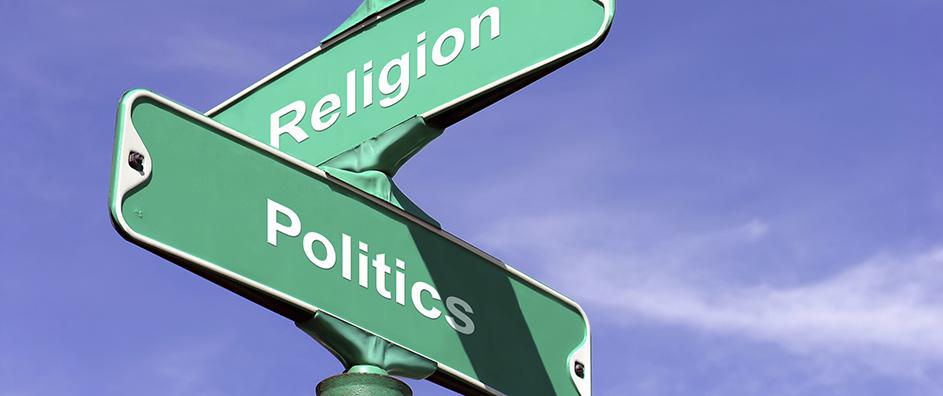In the realm of contemporary discourse, the intersection of politics and religion often elicits fervent debate and, at times, profound misunderstanding. The Baha’i teachings encapsulate a holistic vision, advocating for the harmonization of these two critical spheres as a pathway toward justice, equity, and genuine liberation from tyranny. This article endeavors to explore the intricate relationship between politics and religion within the framework of Baha’i philosophy, emphasizing the imperative for social justice and moral integrity in governance.
A primordial starting point in this exploration involves the acknowledgment of the duality often present in the relationship between politics and religion. Historically, political systems have frequently co-opted religious ideals, turning them into instruments of oppression. Tyranny, in its various forms, emerges when power is misappropriated, leading to the disenfranchisement of marginalized groups. However, Baha’i teachings assert that true religion must inspire individuals and societies to rise above such malpractices.
At the heart of Baha’i principles lies the belief in the oneness of humanity—a concept that obliterates artificial divisions among people based on race, nationality, or creed. This unifying perspective is foundational in the quest for justice. It advocates for shared responsibility in governance, urging individuals to participate actively in the political process. Such engagement is not merely a civic duty; it is a spiritual obligation to foster an equitable world. The teachings espouse that the essence of true democracy is built on consent and collective discourse, ensuring that every voice is heard and respected.
Moreover, an essential component of the Baha’i discourse on politics and religion is the emphasis on ethical governance. Integrity, transparency, and accountability are not merely aspirational ideals; they are prerequisites for any political entity that aims to evoke trust and nurture a peaceful society. The Baha’i teachings contend that leaders must embody these virtues, acting as stewards for the well-being of their constituents rather than self-serving autocrats. Such leadership transcends conventional notions of authority, embracing a model rooted in service rather than domination—one that strives for the common good.
Consequently, the Baha’i vision for a just society promotes the idea of a global governance structure, one that surpasses nationalistic confines and recognizes the interconnectedness of all nations. This transcultural approach to governance is driven by the recognition that global challenges—such as climate change, poverty, and conflict—require collective and coordinated responses. A global justice system, informed by the principles of equity, sustainability, and compassion, resonates deeply with Baha’i perspectives, highlighting the necessity for cooperation and solidarity across borders.
In conjunction with the emphasis on ethical governance, the Baha’i teachings elucidate the concept of the personal transformation necessary for societal change. Each individual is viewed as a vital contributor to the overarching narrative of justice and equity. The propagation of virtues such as love, compassion, and detachment from materialism fosters a culture conducive to the establishment of a more just political environment. When citizens embody these values, their political engagement is inherently transformed into a source of upliftment, transcending purely transactional interactions.
The role of education cannot be overstated in this context. Baha’i principles advocate for universal education as a fundamental right—an essential tool for empowerment and enlightenment. Education breeds critical thought, allowing individuals to discern truth from falsehood. It cultivates an informed electorate capable of holding leaders accountable and advocating for justice. A populace endowed with knowledge is more likely to resist tyranny and engage in constructive dialogue regarding governance and societal issues.
In contemplating the dichotomy of politics and religion, one must also consider the transformative potential of interfaith dialogue as posited by Baha’i teachings. Genuine communication and respect among diverse religious traditions pave the way for a collective moral imperative. This effort to understand and celebrate differences is not solely a means to mitigate conflict; it is an essential strategy for enriching political discourse. The fusion of varied perspectives fosters a holistic understanding of justice—one that transcends parochial beliefs and invites inclusive solutions to global dilemmas.
Furthermore, the path to justice is paved with the recognition of human rights as an inalienable aspect of Baha’i understanding. Justice, viewed through this lens, extends beyond the traditional confines of legalism, encapsulating a broader commitment to the dignity and rights of all individuals. The teachings assert that a true political system must not only uphold the rule of law but also be rooted in a profound respect for human rights, ensuring everyone can realize their fullest potential without fear of reprisal or discrimination.
In conclusion, the Baha’i teachings provide a comprehensive framework for understanding the delicate interplay between politics and religion—a framework that seeks to transcend tyranny and usher in an era of justice. By advocating for ethical governance, emphasizing the oneness of humanity, and fostering personal and collective transformation, Baha’i philosophy elucidates the path toward a society characterized by equity and compassion. As individuals and communities collectively strive to embody these principles, the dream of a just world—free from the shackles of tyranny—becomes an attainable reality.
